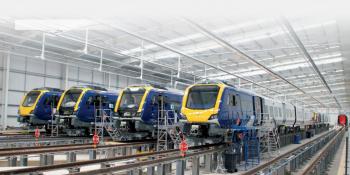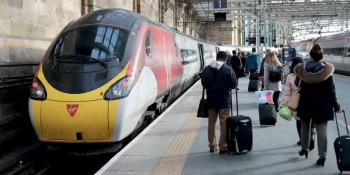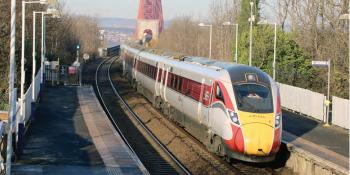Party conference season is upon us and as politicians from all parties gear up for their speeches, we can expect transport and the railways to be featuring strongly. What should we be looking out for, and what might the implications be?
This year more than ever the conferences are set against a background of turmoil and change. Labour and Conservatives both have their own internal challenges, with deep divisions on policy, direction and leadership. We can expect to see politicians setting out their views and raising challenges on and off the conference podium, and there is no reason why the railways should escape discussion. Equally, party leaders will be keen to show that they are rising above internal issues and focusing on voter issues, which also brings railways to the front of debate.
The Labour Party conference in Liverpool at the end of September will no doubt be overshadowed by recent divisions over anti-Semitism and leadership. Yet away from these headlines, the shadow Transport team under Andy McDonald have been highly effective at challenging Government and leveraging political awareness with voters. The timetable issues, particularly in the North, have provided a basis for action, and there is strong support for Labour’s policy of re-nationalisation and of action on fares. Labour has been clear in attaching blame to Transport Secretary Chris Grayling, tabling motions of no confidence and in calling for his resignation over the issues.
Conference will provide an opportunity for these messages to be restated, and the case for re-nationalisation to be set in the context of the summer’s disruption. Electorally popular already, there does not seem to be a compelling argument for new or different rail policies, rather we can expect to see more of the same, for increased pressure and supporting arguments. The case for regional devolution of transport is likely to feature strongly, with Greater Manchester Mayor Andy Burnham seeking greater authority for the North, over and above the powers already granted to Transport for the North. We should also expect renewed calls for investment in the network, including reinstatement of electrification schemes and new capacity.
The Conservative conference in Birmingham will be dominated by Brexit, with ongoing divisions over the Chequers plan, and direction of travel for the future relationship with the European Union. The party will however need to show that it is also making progress on domestic policy, and those wishing to show their hand ahead of any future leadership challenges may well look to transport policy as part of this. The Secretary of State has already made his position clear, with domestic railway regulation carved out of EU negotiations and a fundamental rail review to be undertaken. That such a review is likely to be led by No 10, not by the Department for Transport, is interesting, and perhaps shows that Theresa May also views the railways as politically troublesome given the public polling in support of Labour’s plans. Other rail developments may also be discussed, including a growing bubble of new debate around HS2, not least around the already announced slippage of the Phase 2b bill.
In Scotland, the Scottish National Party Conference in Glasgow will see Michael Matheson lead on transport for the first time, taking over the brief from Humza Yousaf in June. Mr Matheson comes with cabinet level experience from his previous role in justice, but it will be interesting to see if there is any change of tone or emphasis on rail. This particularly includes future enhancements and electrification, whilst the implications of Brexit on transport are also critical for Scotland’s exporters.
The smaller parties have struggled to capitalise on the recent turmoil, but with the Green Party appointing a new leadership team of Sian Berry and Jonathan Bartley there is an opportunity to increase its visibility and pressure. Ms Berry has form in transport, with a former role at Campaign for Better Transport in her CV, and it will be interesting to see whether a broader railway policy will emerge, alongside the party’s opposition to HS2.
As always, party conference season aims its messages at party members but has much wider consequences across Government and opposition. With Brexit looming, and the railways under constant scrutiny, the political environment for our sector is acute, and navigating the next few months will require care. The speeches of the next few weeks may help to steer that debate, but they seem unlikely to solve it.
An opinion column of the Rail Freight Group, www.rfg.org.uk



